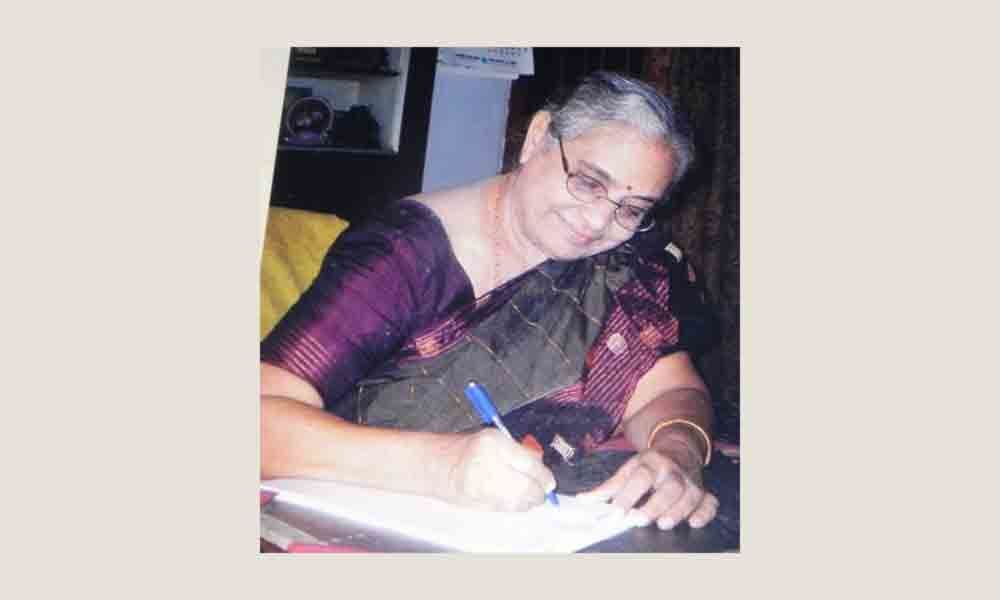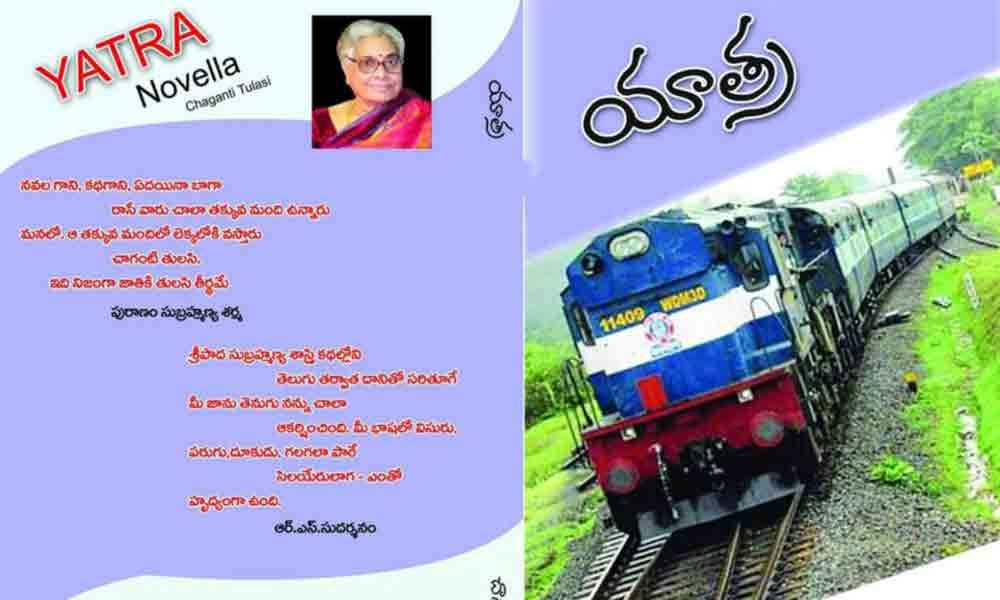Live
- Gentle in manner, resolute in convictions: Sonia Gandhi pens emotional note for Dr. Manmohan Singh
- 2024: A landmark year for India's defence achievements and breakthroughs
- 2025 Horoscopes: Insights and Guidance by Pt. Umesh Chandra Pant
- Osamu Suzuki was a legendary figure in global auto industry: PM Modi
- “AMOEBA”: Celebrating the Journey of Telugu Entrepreneur Sri Motaparti Siva Rama Vara Prasad
- Sachin Khedekar recites a poem from director Feroz Abbas Khan’s powerful new play, ‘Hind 1957’
- NABL-QCI appoints Dr. Sandip Shah as chairperson
- Centre transfers Rs 2.23 lakh crore for 1,206 schemes under Direct Benefit Transfer
- BGT 2024-25: Watching Konstas bat reminds me of Symonds, says Hayden
- 75 iconic lighthouses in India saw more than 10 lakh visitors till September
Just In
Vijayanagaram (the city of victory) as it means, is also known as Vidyaanagaram (city of learning). Many stalwarts in the fields of literature, music and culture from this small town made their mark in the history.
Dr Chaganti Tulasi, who hails from Vizianagaram is the worthy daughter of a great father Chaganti Somayajulu (Chaso, as he is known as), and carries the mantle of literature for the next generations. Continuing thelegacy, Dr Tulasi, a short story writer, a good translator and a literary critic, a woman of letters stands as a pride for North Coastal Andhra (Uttarandhra). Being the daughter of Chaso, Tulasi had the privilege of spending her childhood closely watching the then emerging literary personalities, Sri Sri, Srirangam Narayana Babu, Ronanki Appalaswamy, Arudra and many more. The little girl 'Chinnaji' of Chaso's first story is none other than Tulasi, his daughter.
One of her stories "Ash tray" stands as an exemplary of feminist literature. Self esteem of a woman is kept on high strata in all her stories. Being affirmative and strong is the trait of the women characters in her stories. Her other stories "Bamma Rupayi", "Vadadebba" portray generation gap and the attachment between the two age groups. She made her outstanding mark in Telugu literature with her story anthology "Tulasi Kathalu".
She is the bridge between the three languages Oriya, Hindi and Telugu. Her translation "Olga Nundi Gangaku" of Rahul Sankrityan, to her recent work of "Mahadevi Varma Geethalu" marks her distinguishing contribution to Telugu literature. Along with Upadrastha Anuradha, translator (who passed away recently) she translated the "Odisha Jaana Pada Kalalu" (Odisha folk arts) to Telugu.
Her novelette "Yaathra" which was first published in 1979 by Aruna Publishing House, Vijayawada, is recently published again by NK publishers, Vizianagaram.
In this small novelette, Tulasi gives a valuable message of tolerance, acceptance and adjustment as part of life.
The story is about an old widow Ammanna and her childhood friend Sitamma. "Yaathra", the journey of Ammanna from her prejudices to an acceptance of life and the attitudinal change accepting the next generation is the story. Eventhough the story was written four decades ago, it still carries its relevance to the present times. The older generation should understand the new generation and has to come out of the age old customs and traditions. Trends have changed, and a little acceptance of the modernity will make happy families. Ammanna, unable to put up with the modern trends of her son, daughter in law and family in Kolkatta, comes to Sitamma, who is her childhood friend living in Cuttack. Sitamma is also living with her son and his family. The attitude and acceptance of Sitamma of her daughter in law and son, dawns a realisation on Ammanna and finally her journey on which she sets on fulfils and she returns home happily. In this small novel the writer gives not only a message about the old generation adjusting with the modern, but the tolerance and love we should have for the people of other states and languages. As the saying goes "Be a Roman when in Rome" this is the attitude of Sitamma in accepting the place, people and their culture and the generation gap. The love and affection of Sitamma for her family and also people of other languages like Oriya and Bengali make Ammanna realise her mistake.
"Yaathra" makes the reader to ponder over the concept of tolerance and acceptance from personal to the universal level. Tolerant attitude is a must in a country like India, rich and varied in cultural heritage. The deep-rooted tradition of ours has a strong foundation and Tulasi presents the 'Bharateeyaathma' the spirit of the Indian soil of broad mindedness. The protagonist Sitamma does not try to teach anything or explain to her agitated friend, but only educates by her behavior. There are no didactic messages to her friend, and Ammanna is enlightened by realizing how a little acceptance and forbearance can make a happy family. If one sets apart the ego and superstitious beliefs and tries to look at reality, many problems will be solved either in the family or the nation. The writer takes Ammanna, on an outward and inward journey to reform herself. Dr Tulasi establishes the importance of the family unity and its importance in the society. Happy families make healthy nations.
Family is the prime unit and especially in our country we have respect for this system. The ardent belief of the writer is that any change is brought from the family first.
The concept of this novel is well taken and famous writers like Ranganayakamma, Poranki Dakshina Murthy, and famous critics like R S Sudarsanam placed this novel on a high pedestal. The recent second edition of this novel well brought by NK publishers is a very commendable effort. Readers should avail the opportunity to read this novel.

© 2024 Hyderabad Media House Limited/The Hans India. All rights reserved. Powered by hocalwire.com









